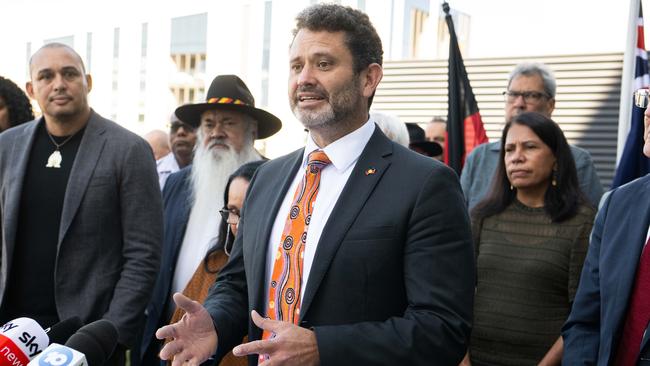Liberal senator Kerrynne Liddle says Aboriginal identification in SA now ambiguous after Voice Bill passes
An Indigenous Liberal Senator has criticised key wording in the SA government’s Voice legislation, calling it a “distortion”,
SA News
Don't miss out on the headlines from SA News. Followed categories will be added to My News.
Aboriginal identification in South Australia is set to be shrouded in ambiguity as the state government abandons the nation’s longstanding definition of a First Nations person, an Indigenous senator claims.
Liberal senator Kerrynne Liddle says the state government’s legislation for an Indigenous Voice to Parliament disregards the traditional definition of an Indigenous person that has been used by the Commonwealth for more than 40 years.
Under SA’s First Nations Voice Bill, a person is considered Indigenous if they:
ARE of Aboriginal or Torres Strait Islander descent; and
REGARDS themselves as Aboriginal or Torres Strait Islander (as the case requires); and
IS accepted as an Aboriginal or Torres Strait Islander person by the relevant Aboriginal or Torres Strait Islander community.
Senator Liddle, whose opinion is key to the Coalition’s stance on a federal voice to parliament, said the wording made the definition ambiguous and called on Attorney-General Kyam Maher to explain why it differed from the Commonwealth wording.

“At a time when questions of identity are being asked at the federal level in relation to who can vote and who can nominate as a candidate that have not yet been answered, the definition in this legislation should not be supported if it is not entirely consistent with current definitions,” Senator Liddle said.
Under the Commonwealth’s three-part definition adopted in 1978, an Indigenous person is someone of “Aboriginal or Torres Strait Islander descent who identifies as an Aboriginal or Torres Strait Islander and is accepted as such by the community in which he or she lives”.
Senator Liddle said the “enormity” of the state government’s “distortion” of the three-part test was particularly profound as the federal government looked to the SA bill as a “helpful template for a national Voice to Parliament”.
Attorney-General Kyam Maher’s spokeswoman said the terms “regard themselves” and “identifies” have “the same practical effect”.

“The term ‘regards themselves’ is what is used in other South Australian legislation such as the Correctional Services Act 1982 and the Sentencing Act 2017. We seek to have consistency across our legislation in South Australia,” the spokeswoman said.
“The Bill provides for an offence for making a false declaration of eligibility which carries with it up to four years imprisonment.”
The state government passed legislation to establish an Indigenous Voice to parliament on Sunday during a special sitting.
Last week, Prime Minister Anthony Albanese revealed the wording of the national referendum to enshrine an Indigenous Voice to Parliament.





